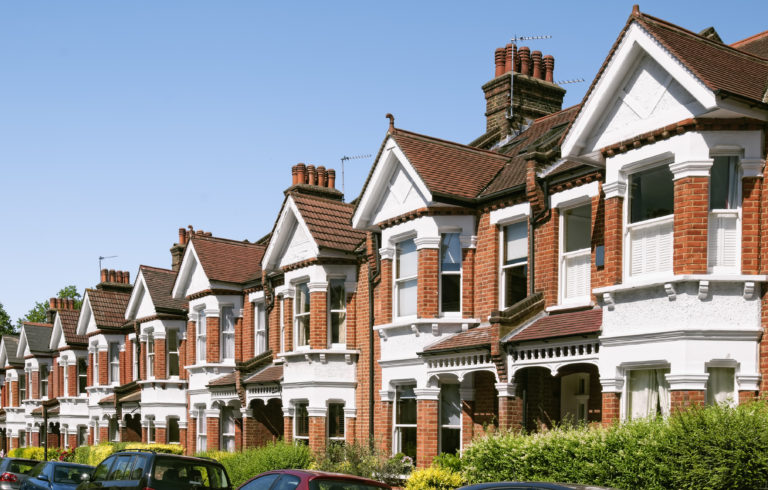Over the past couple of months, working from home has become the norm for hundreds of thousands of people. How could this change new developments in housing after coronavirus?
Since Boris Johnson announced the UK lockdown on 23rd March, offices and most places of work have been closed. Everyone able to do so has been urged to work from home since then, meaning the way we currently use our homes has seen a drastic shift.
The lockdown is currently a temporary measure as a result of the coronavirus outbreak. The government has already begun to ease some of the restrictions, with more changes set to follow. However, it seems that people’s attitudes towards home-working are changing.
A number of companies, including Twitter, Amazon, Google and Facebook, have made some groundbreaking announcements on the topic. Twitter employees have been told they can work from home “indefinitely” if they want to. For Google and Facebook, staff will not need to come back to the office until 2021. At Amazon, office workers can stay at home until at least October.
As other businesses reassess their working practices to comply with new rules, it’s likely that remote working will see a steep rise even after the lockdown is lifted.
Home-working before coronavirus
Between January and December 2019, an Office for National Statistics (ONS) study looked at working trends in the UK. It found that around 1.7 million people out of a total 32.6 million in employment mainly worked from home. While this was just 5.1% of the total workforce, the figure has been slowly rising, up from 4.3% in 2015.
Additionally, four million people had worked from home in the week prior to the survey 2019. A further 8.7 million reported that they had worked from home at some point.
With continued advancements in technology, as well as the rollout of faster internet across the UK, working from home has become increasingly popular. Of course, not every job lends itself to this style of working. As the lockdown eases further, many people currently working at home will expect to return to work. However, a lot of businesses and individuals are rethinking the flexibility of their working situations. According to one recent study, as many as 90% of people would like the option of being able to work from home.
Nicky Stevenson from Fine & Country believes coronavirus will leave “a legacy of consumer behaviour change”.
“Lockdown has proved working from home is viable and even convenient. We do not envisage the death of the office, with the social benefits too great. However, working from home may become more common, shifting the relative importance of commute times, broadband speeds and home offices.”
How could this impact the housing industry?
One London developer has recently released plans to prioritise home-workers in its next development. Euroterra Capital’s Queen’s Gardens Residences in West London intends to enhance its facilities to support residents who work from home.
Like many large, modern apartment blocks, the development offers a communal remote working space, and the firm has said it will increase its capacity. The space will have 24-hour access, which residents can be pre-book. This will mean people will have somewhere outside their apartment to go to work, which will benefit users on a practical as well as social level.
The developer says it will fit working areas with equipment including monitors and printers, as well as high-speed internet and HD cameras for conference calls. There will also be an area for contactless deliveries for residents. Within people’s apartments, there is also a focus on enabling home-working in terms of layout, electricity connections and internet coverage.
Pantazis Therianos, chief executive of Euroterra Capital, said: “We know that the way we are living has changed radically in the last few months and there are likely to be further changes along the way, but we believe that this development gives buyers confidence in making their home somewhere that makes this ‘new normal’ a little easier.”
Property investment focus
Some of what the developer is suggesting already exists in many build-to-rent apartments blocks. These are known for their emphasis on communal areas and residents-only spaces, where people can work as well as socialise. Developers tend to prioritise high-speed internet and modern workspaces for their target market.
The seismic change that has taken place over the past few months due to the coronavirus outbreak has drastically affected people’s lives. For the most part, most people will hope that life returns largely to normal in the coming months.
However, as the ONS statistics show, home-working was already a growing trend. High-speed internet connection and a space to work were already the top priorities of many buyers and renters. As people and companies have been forced to adopt new working practices, it seems likely that some of these new ways may continue into the future. Therefore, from a property investment perspective, this could be an area to focus on when looking to future-proof your investment portfolio.
At BuyAssociation, we work with some of the UK’s leading property developers. If you’re looking for a future-proofed investment opportunity, sign up for free now. You can also get in touch directly or browse some of our stock here.










